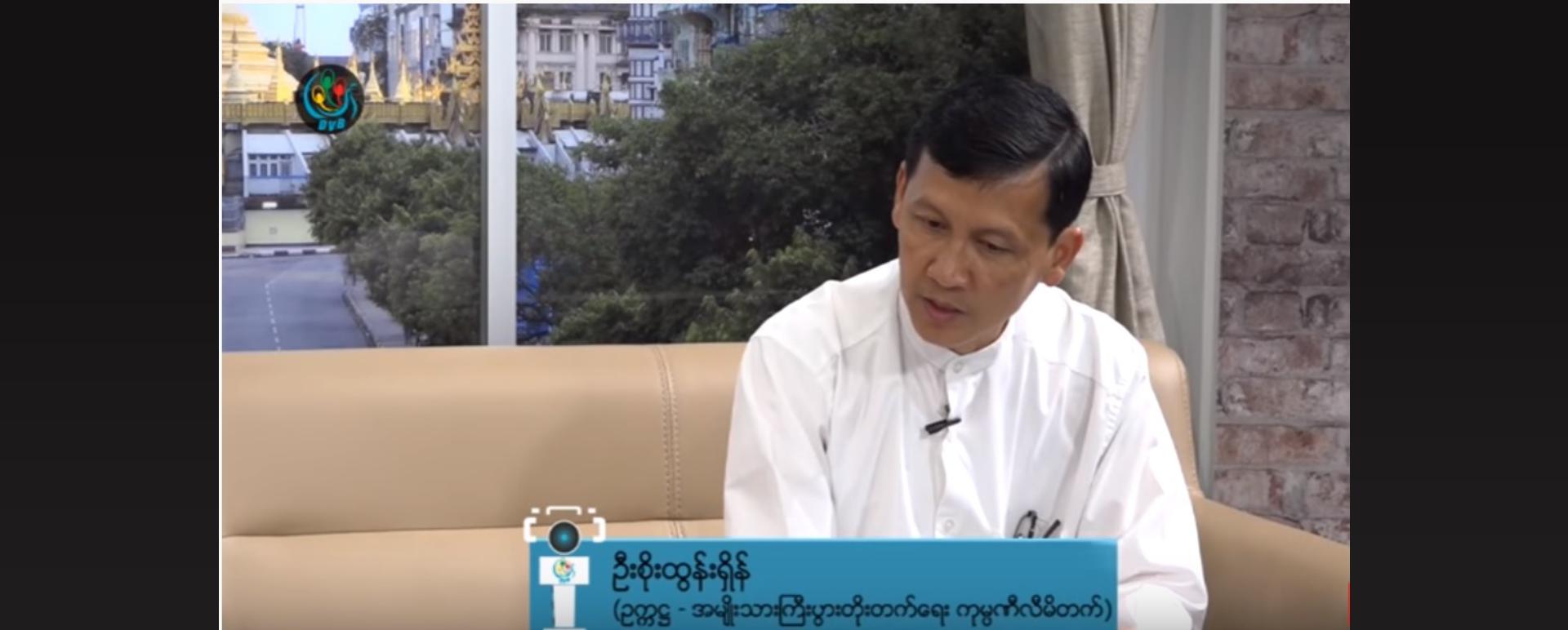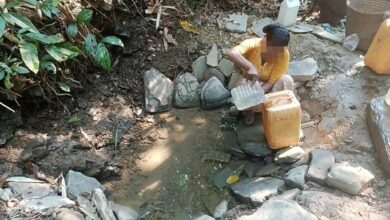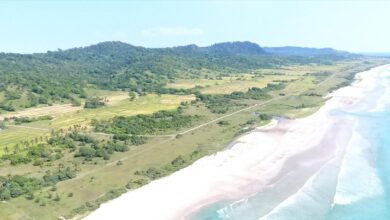
The Democratic Voice of Burma (DVB) borrowed 100m kyat ($75k) from a nationalist-linked gold mining company just weeks before officials launched an investigation into the firm for failing to hand over bullion that it owed to the government.
The December 2016 agreement raises questions about the broadcaster’s coverage of scandals surrounding the National Prosperity Company (NPC) and its chairman Soe Htun Shein, who was arrested Wednesday on charges of mining without a permit.
Executives at DVB say the loan did not affect their ability to report on the company impartially, and that a former head of advertising made the decision to take the money without informing his superiors.
“If we had known the money was to be borrowed from Soe Htun Shein, we would have stopped it,” Aye Chan Naing, DVB’s executive director and chief editor, told Myanmar Now. “But the loan was already taken by the time we found out. We were only informed after a month,” he added.
However, a contract for the loan seen by Myanmar Now says the two companies had previously done business. And in 2018 DVB once again entered into a business relationship with NPC; this time for a sponsorship deal.
Aye Chan Naing said he presumed the previous business relationship referred to in the contract was also a sponsorship deal.
He added that the sponsorship agreement was above board. “There is no secret, it’s a commercial sponsor,” he said.
After the 2016 loan was agreed, DVB twice interviewed NPC chairman Soe Htun Shein – once in early 2017 and again the following year.
On both occasions the interviewers failed to ask him about his links to Buddhist extremists. Soe Htun Shein has on several occasions donated money – and sometimes solid gold – to fund the activities of the firebrand monk Wirathu and his allies.
Aye Chan Naing said the tycoon’s links to hardliners weren’t well known when the first interview happened. But the BBC’s Burmese service reported as early as 2015 that NPC had donated gold to the anti-Muslim group Ma Ba Tha.
By the time of the second interview, the loan had been repaid, he added. He said there was no particular reason the reporter didn’t ask about links to hardliners on that occasion and that the loan played no role in the decision to schedule either interview.
“We would never compromise our independence,” he said. “We would rather abolish the whole of DVB.”
Soe Htun Shein’s staff sent a list of questions that they wanted DVB to ask him ahead of the second interview, said Nay Thwin Nyein, the journalist who interviewed him. But DVB rejected his request and only asked questions prepared by its news desk, he added.

Another story of public interest concerning NPC was its row with the government, during which the company defied an order to cease operations at its gold mine in Moehti Moemhi, Mandalay region.
Many of the company’s top executives have been arrested or gone into hiding after being charged with offences related to the company’s defiance of the government.
Soe Htun Shein was declared a fugitive earlier this year. Police hunted him in Thailand for several weeks before his arrest after Myanmar Now reported that he had been spotted at an airport in Bangkok on October 14.
Aye Chan Naing sent Myanmar Now several links to stories DVB had aired about the Moehti Moemi scandal, including protests against the company and a segment drawing attention to the fact that authorities had yet to arrest Soe Htun Shein.
Credible source
DVB was established in 1992 and had to operate outside of Myanmar because their reporting on human rights violations would never have been tolerated by the military junta.
The outlet has long been seen as one of the most credible sources of news from Myanmar and won praise for its coverage of the 2007 monk-led uprising and Cyclone Nargis in 2008, as well as its investigative work on the junta’s ties with North Korea.
It employs hundreds of staff and has a yearly operating budget of millions of dollars.
NPC paid the loan to DVB in two installments and charged interest of 13% a year, according to the contract seen by Myanmar Now.
The contract also stated that DVB “needs money to operate” and that NPC “has agreed to help as the two companies have done business together before.” It did not give further details.
At the time of the loan, executives say DVB was facing financial problems because payments it was relying on from donor organisations had yet to arrive.
The broadcaster used the funds to rent office space in downtown Yangon for its advertising department.
The loan has now been fully paid off, said Aye Chan Naing. In fact it is now NPC that owes DVB money, he added. NPC signed a contract with them in April 2018 to sponsor a show called Fix It.
The company agreed to pay 2 million kyat per episode – a total of 48 million kyat for 24 episodes – in exchange for being promoted on the show, documents seen by Myanmar Now said.
But Aye Chan Naing says NPC still owes DVB 32 million kyats.
NPC told them in a letter in April this year that it was unable to pay off its debt because its gold mine had been shut down by the government.
“The money will be provided when the operations resume in Moehti Moemi,” the letter said.
NPC is also believed to be in legal trouble regarding 10 billion kyat it borrowed from Kanbawza Bank in 2016 or 2017. Thein Than Oo, a lawyer for NPC, told Myanmar Now in May that the bank was trying to file a lawsuit against the company at Yangon Regional Court. Kanbawza declined to comment.
Myanmar Now contacted NPC several times over the past few months regarding the Moehti Moemi gold mine, but the company did not respond.




